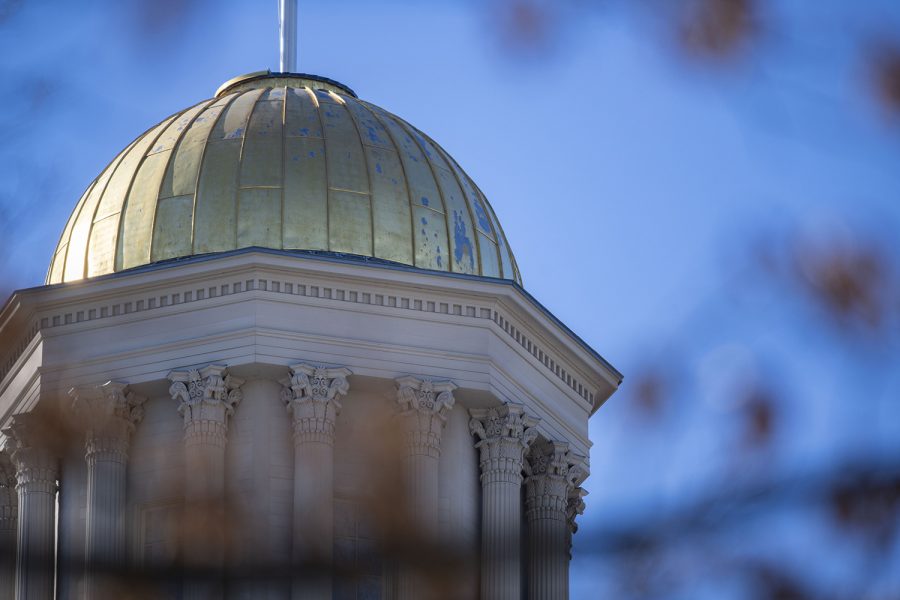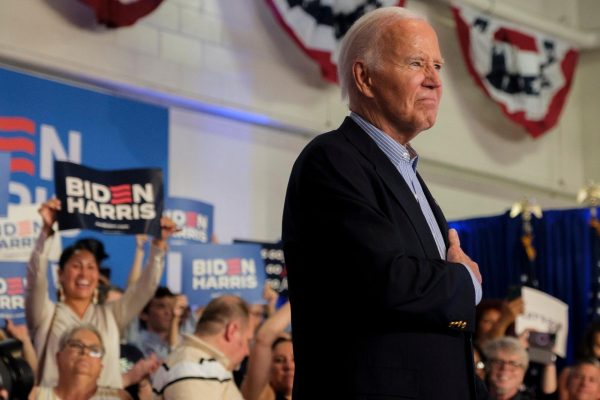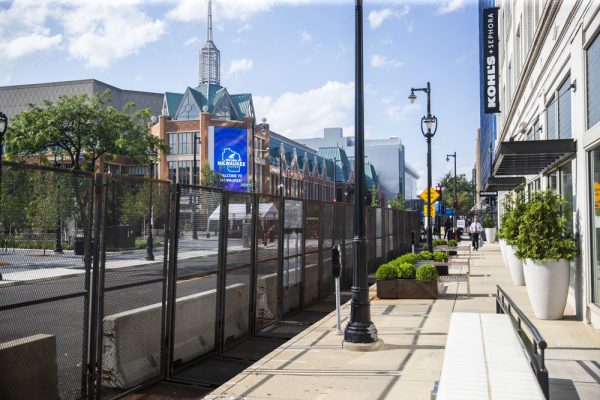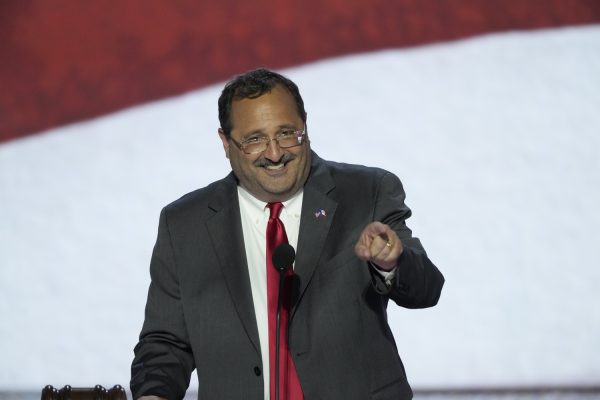Majority of students feel comfortable expressing their opinions, Board of Regents survey finds
Around 10 percent of students across Iowa’s three public universities responded to the survey.
The Old Capitol Dome is seen on Tuesday, Jan. 25, 2022. Bids for the Old Capitol’s gold leaf dome to be redone will be accepted on Feb. 8 and will cost an estimated $505,000.
February 16, 2022
The state Board of Regents has received the results of the first free speech survey it commissioned across Iowa’s three public universities — and the results found that most students feel comfortable expressing their opinions, especially in class.
The survey garnered a response rate of around 10 percent of the student bodies at the University of Iowa, Iowa State University, and the University of Northern Iowa. For faculty and staff, the response rate was 38 percent.
The report of the survey results provided in the agenda for the regents’ Feb. 23 meeting does not break down the responses by campus, or by demographic categories.
The survey was released back in November, and the regents plan to conduct the survey every two years.
Among students, 78 percent said they felt comfortable expressing their opinions in class, and 74 percent said they felt comfortable expressing their opinions on campus when not in class.
Data visualization by Kate Perez/The Daily Iowan
The area where students felt least comfortable expressing their thoughts was social media, with 60 percent of respondents agreeing or somewhat agreeing they felt comfortable expressing their opinions in that space.
When asked if they believed the university allowed them to say things others might find offensive, 56 percent agreed, and 61 percent agreed that other people were allowed to say things they believed, even if they might be considered offensive.
A 2021 Knight Foundation nationwide survey of college students regarding free speech on campus found 48 percent of students felt comfortable expressing dissenting opinions in class.
According to the Knight Foundation Survey, “relatively few” college students have comprehensive knowledge of what the first amendment does and does not protect, with just 14 percent of students correctly answering all five questions the survey asked about free speech knowledge.
The results from the regents’ survey suggest students at Iowa’s public university feel more comfortable expressing their views than the national average, the report noted.
Data visualization by Kate Perez/The Daily Iowan
“Although these questions were asked in slightly different ways, the results suggest that students at Iowa’s Regent universities are comparatively more comfortable in their classrooms than students at many other institutions nationally,” the report said.
Employees were less likely than students to report feeling comfortable sharing their opinions. 64 percent of respondents said they could express their opinions at work, and just 44 percent said they felt comfortable doing so on social media.
Among students at the UI, ISU, and UNI, 73 percent said their university provided an environment for free expression, and 66 percent agreed that the university does not restrict speech on campus.
Employees had similar responses, with 69 percent agreeing their university provided an environment for free expression, and 64 percent agreeing free speech is not restricted.
The survey also asked about seeking out and listening to opposing views. Among students, 90 percent said they were good at listening to other views — but only 41 percent of students agreed that other students were good at seeking opposing viewpoints.
Data visualization by Kate Perez/The Daily Iowan
Figures were similar among employees, with 91 percent agreeing they were good at seeking other views, and 61 percent of employees agreeing that students were good at listening to opposing ideas.
Regents spokesperson Josh Lehman did not immediately respond to a request for comment on how the regents plan to use the free speech data. The regents have undertaken several free-speech-related initiatives in recent years, creating the free speech committee in 2020. The board also recently launched a required free speech training module for students, faculty, and staff.















